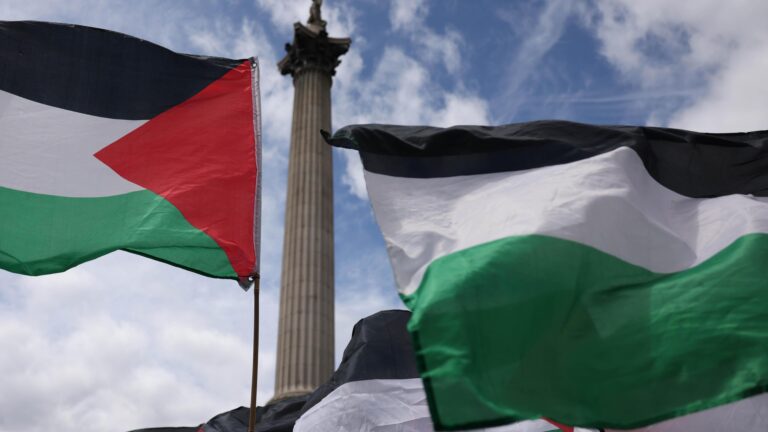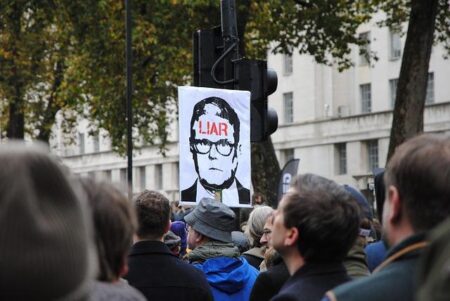In a notable shift in its diplomatic stance, France is increasingly vocal in its support for Palestinian statehood, signaling a readiness to take a firmer position amid the protracted Israeli-Palestinian conflict. The declaration “Enough was enough” reflects growing frustration within French political circles and civil society over stalled peace efforts and ongoing violence in the region. This article explores the factors driving France’s evolving policy, its implications for international diplomacy, and what this means for the broader quest for a two-state solution.
France Signals Shift in Middle East Policy Amid Growing Global Pressure
France’s recent pivot reflects a growing impatience with stalled peace efforts in the Middle East. After years of advocating for dialogue and a balanced approach, Paris is now adopting a firmer stance on Palestinian statehood, signaling a willingness to challenge longstanding international frameworks. This shift comes amid mounting global pressure from both regional actors and international allies demanding more decisive action to resolve the conflict. The French government emphasizes that the status quo is no longer sustainable, highlighting human rights concerns and the urgent need for renewed diplomatic momentum.
- Increased diplomatic engagement: Paris has ramped up talks with Palestinian leadership and key Arab states, pursuing a more assertive role in peace negotiations.
- Balancing acts: France aims to maintain strong ties with Israel while advocating for Palestine’s right to statehood.
- International coordination: Efforts are underway to align EU policies more closely with France’s evolving position to present a unified front.
| Aspect | Previous Stance | Current Shift |
|---|---|---|
| Diplomatic Tone | Neutral, dialogue-focused | Firm support for Palestinian recognition |
| Engagement Level | Limited direct involvement | Active mediation and advocacy |
| International Collaboration | Variable coordination | Strategic EU alignment |
Analyzing the Political and Diplomatic Factors Behind France’s New Stance
France’s shift towards a more assertive position on Palestinian statehood is rooted in a complex web of political and diplomatic considerations. Domestically, President Emmanuel Macron faces mounting pressure from various political factions urging a clearer stance on the Israeli-Palestinian conflict, reflecting growing public concern over human rights and regional stability. Furthermore, France’s traditional role as a mediator in Middle Eastern affairs is challenged by a changing geopolitical landscape, where its influence is being contested by other global powers. These internal and external dynamics have compelled Paris to rethink its diplomatic approach, signaling a desire to reassert its voice in international diplomacy.
The evolution of France’s policy also mirrors broader international shifts. Notably, European allies have diverging views on the issue, prompting France to carve out a distinctive path that emphasizes both support for Palestinian sovereignty and commitment to Israel’s security. This balancing act is underpinned by strategic interests such as maintaining regional alliances, safeguarding economic ties, and addressing security threats linked to extremism. The table below summarizes the critical political and diplomatic factors shaping France’s renewed stance:
| Factor | Description |
|---|---|
| Domestic Pressure | Growing calls from parliament and civil society for proactive engagement on Palestinian rights |
| Geopolitical Competition | Rising influence of global powers challenging France’s Middle East diplomacy |
| European Dynamics | Varied EU member state positions requiring a tailored French response |
| Strategic Interests | Balancing economic, security, and alliance concerns in a volatile region |
- Reinforcing France’s commitment to international law and multilateralism
- Addressing humanitarian concerns in Palestinian territories
- Managing complex relationships with Israel, the US, and Arab states
Pathways Forward Recommendations for France’s Role in Advancing Palestinian Statehood
France’s newly assertive stance on Palestinian statehood is more than symbolic; it represents a strategic pivot aimed at reshaping diplomatic engagement in the Middle East. To effectively champion this cause, France must prioritize multilateral cooperation, leveraging its European Union leadership to forge stronger consensus within EU institutions. Engaging key regional stakeholders, including Egypt, Jordan, and the Gulf States, can help create a cohesive framework that supports a two-state solution. Paris’s diplomatic toolkit should focus on:
- Expanding political dialogue forums that include both Israeli and Palestinian representatives
- Increasing humanitarian aid and development projects targeting Palestinian territories
- Promoting international legal mechanisms to protect Palestinian rights
Concrete policy actions can be distilled into clear objectives. Below is a snapshot of strategic priorities France could adopt to amplify its influence while maintaining balanced diplomacy:
| Priority Area | Action | Expected Impact |
|---|---|---|
| Diplomatic Alliances | Host EU-led peace summits | Renewed commitment to two-state framework |
| Humanitarian Support | Boost funding for West Bank infrastructure | Improved living conditions, political stability |
| Legal Advocacy | Push UN resolutions reinforcing Palestinian rights | International recognition and legitimacy |
Future Outlook
As France steps decisively into the contentious debate over Palestinian statehood, its shift signals a potential recalibration in international diplomacy amid escalating tensions in the Middle East. By declaring that “enough was enough,” Paris not only reasserts its long-standing commitment to a two-state solution but also challenges the EU and global powers to reconsider their positions. How this move will influence the broader peace process remains to be seen, but France’s willingness to take a stand underscores the growing urgency for renewed dialogue and action in pursuit of a lasting resolution.




